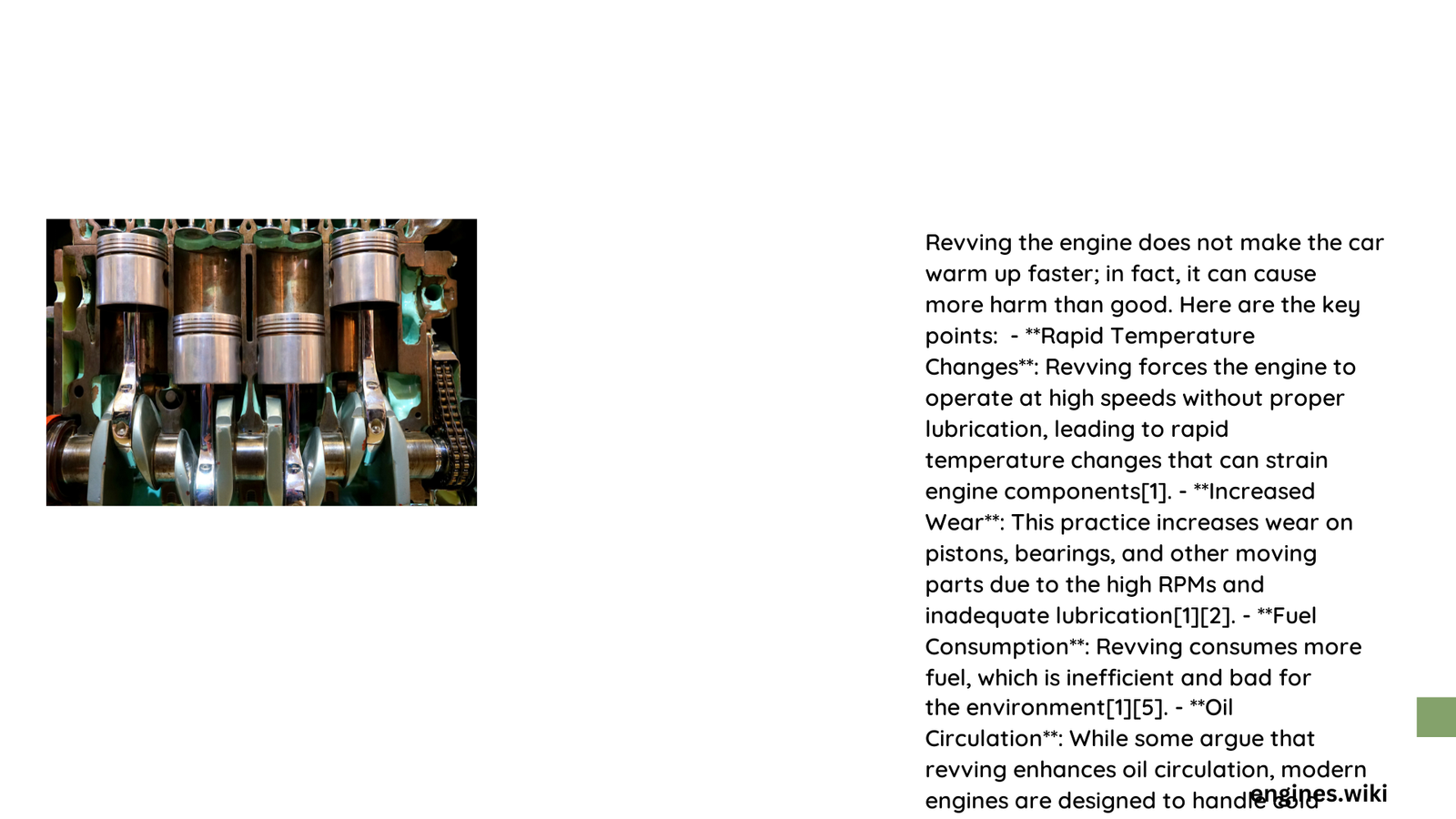Modern vehicle owners often wonder whether aggressive engine revving accelerates the warming process. Contrary to popular belief, rapidly increasing engine RPMs does not effectively warm up a car’s engine. In fact, this practice can cause significant mechanical stress, uneven temperature distribution, and potential long-term damage to critical engine components. Understanding the proper method of warming up your vehicle is crucial for maintaining its longevity and performance.
What Happens When You Rev the Engine to Warm Up?
Revving an engine before it reaches optimal operating temperature can lead to several mechanical complications:
Why Does Rapid RPM Increase Cause Potential Damage?
- Uneven Thermal Expansion
- Cold engine components experience different thermal expansion rates
- Rapid temperature changes create microscopic stress points
-
Potential warping of critical engine parts
-
Lubrication Challenges
- Cold oil remains thick and viscous
- Inadequate oil circulation during high RPMs
- Increased friction between moving parts
How Do Modern Engines Warm Up Effectively?
| Warming Method | Effectiveness | Potential Risks |
|---|---|---|
| Idle Warming | Low | Increased emissions |
| Gentle Driving | High | Minimal mechanical stress |
| Engine Revving | Very Low | High mechanical wear |
What Are the Recommended Warming Techniques?
Automotive experts suggest the following approach for warming up modern vehicles:
- Start the engine and wait 30 seconds
- Begin driving gently, avoiding high RPMs
- Allow engine to reach optimal temperature through gradual use
- Maintain moderate acceleration for first 5-10 minutes
Can Excessive Revving Cause Long-Term Engine Damage?
Repeated aggressive engine revving before reaching optimal temperature can:
- Accelerate wear on piston rings
- Cause premature cylinder wall scoring
- Reduce overall engine lifespan
- Increase maintenance costs
Scientific Perspective on Engine Warming

Research indicates that modern engines, particularly those with fuel injection and advanced metallurgy, warm up most efficiently through gentle, consistent use. The traditional belief that aggressive revving speeds up warming is scientifically unfounded.
Key Factors Influencing Engine Temperature
- Ambient temperature
- Engine design
- Oil viscosity
- Driving conditions
- Vehicle age and maintenance
Practical Recommendations
- Avoid prolonged idling
- Start driving within 30 seconds of engine start
- Maintain moderate acceleration
- Use manufacturer-recommended oil viscosity
- Perform regular maintenance
Conclusion
While the temptation to rev an engine might seem logical, it does not make the car warm up faster. Modern vehicles require gentle, consistent use to reach optimal operating temperature efficiently and safely.
Reference:
– SAE International Research Papers
– Society of Automotive Engineers
– National Institute of Automotive Research
